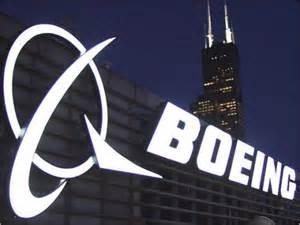
SAN FRANCISCO, Nov. 6 (Xinhua) -- The Boeing Company highly welcomes China to compete as a new player on international aviation market in the next 20 years, which envisages a huge demand for more than 40,000 passenger aircraft across the world, John Bruns, president of Boeing China, said in a written interview with Xinhua Monday.
According to a Boeing forecast for the next two decades of global market, the colossal demand for commercial planes provides sufficient room for new comers to step in for competition, and Boeing will become stronger under the pressure of new competition, which will encourage Boeing to keep its leadership in the aviation industry, Bruns said.
Talking about the fact that the aviation industry of China has achieved considerable progress in recent years and China has successfully produced its own type-C919 passenger aircraft for its domestic market, Bruns said that it's natural for Boeing to see China has progressed to such a stage of development that it demonstrated its willingness and ambition to be engaged in the global market of civilian airplanes.
Boeing has forged a profound and solid relationship with China's aviation industry and the Chinese government over the past 45 years since it entered China 1972, when the historical visit by former U.S. President Richard Nixon to Beijing opened a window for Boeing aircraft to find a place in this market, Bruns said.
Now China has become the largest market of the world civil aviation industry, he said, adding that Boeing and China have grown as very close friends during this process. The two sides have maintained satisfactory communication and understanding, which resulted in a mutually beneficial partnership that will push both sides to seek common development, said Bruns.
Media reports said Kevin McAllister, president and chief executive officer of the Boeing Commercial Airplanes, a division of the world's largest aircraft manufacturer, is among the high-profile CEOs from 29 American firms that are traveling with U.S. President Donald Trump, who is on an 12-day Asia trip that includes a state visit to China from Nov. 8 to Nov. 10.
Bruns said Boeing has entered its 101st years of development, and it has been engaged with China for at least half of the past years in history.
China will become an indispensable part of Boeing in the next 100 years, and Boeing would not be able to expand and succeed without its continuously deepening and far-reaching partnership with China in the coming 100 years, Bruns said.
According to Boeing's 2017 China Current Market Outlook, China will need to purchase more than 7,240 new airplanes valued at 1.1 trillion U.S. dollars over the next 20 years, he said.
China has a component role on every current Boeing commercial airplane model, including the world's most technologically advanced airplane, the 787 Dreamliner, and more than 9,000 Boeing airplanes fly throughout the world with integrated China-built parts and assemblies, Bruns said.
Boeing is the largest client of China in the aviation manufacturing sector, he said, and as far as Boeing is concerned, the greatest challenge for Boeing in the near future is how to satisfy and even outgrow the needs of its Chinese customers for better and qualified Boeing products and services.
Last month, Boeing and the Commercial Aircraft Corp of China (COMAC) unveiled Boeing's first overseas completion and delivery center in Zhoushan, East China's Zhejiang province, with a registered capital of 55 million dollars.
Boeing has invested 33 million U.S. dollars and takes a 60 percent share, while COMAC invested 22 million dollars with a 40 percent holding.
The completion and delivery center is not only the largest project of Boeing in China, but also one of Boeing's largest overseas projects outside the United States.
This is a good example of Boeing's commitment to the Chinese market, which will bring its cooperation with the Chinese aviation industry to a new high, Bruns said.
Boeing is an American multinational corporation based in Chicago and also the largest aircraft manufacturer in the world.




 A single purchase
A single purchase









